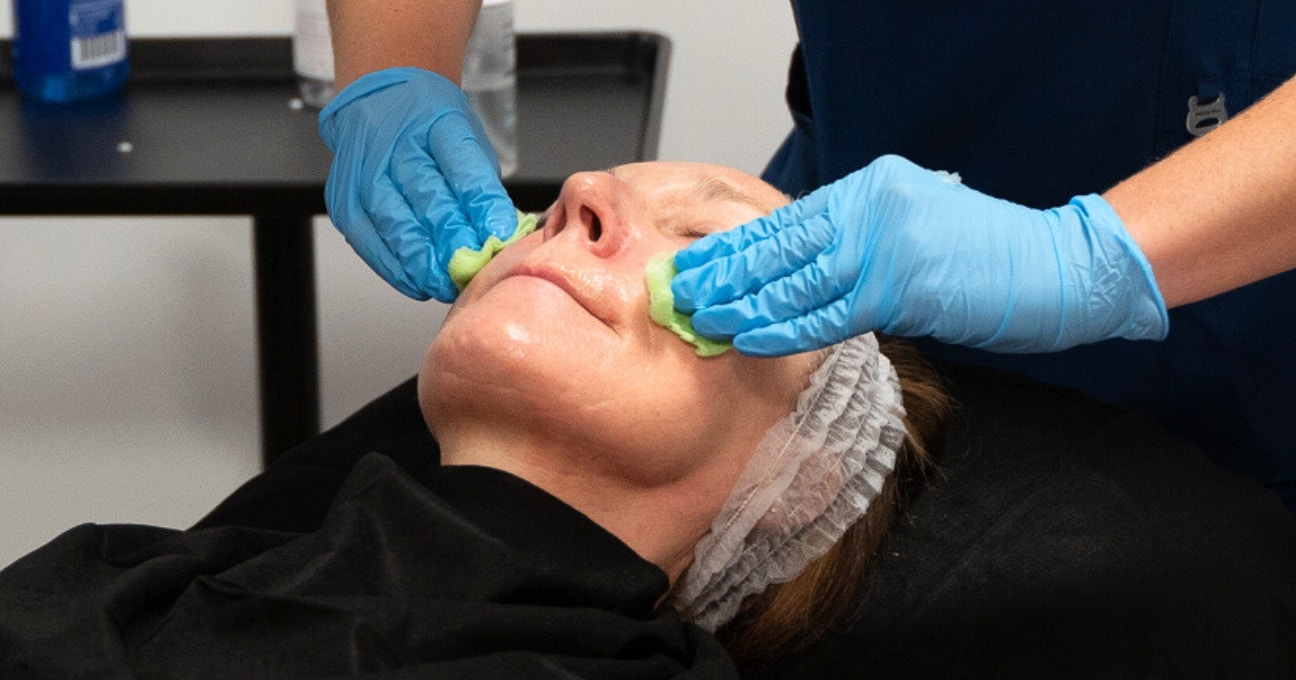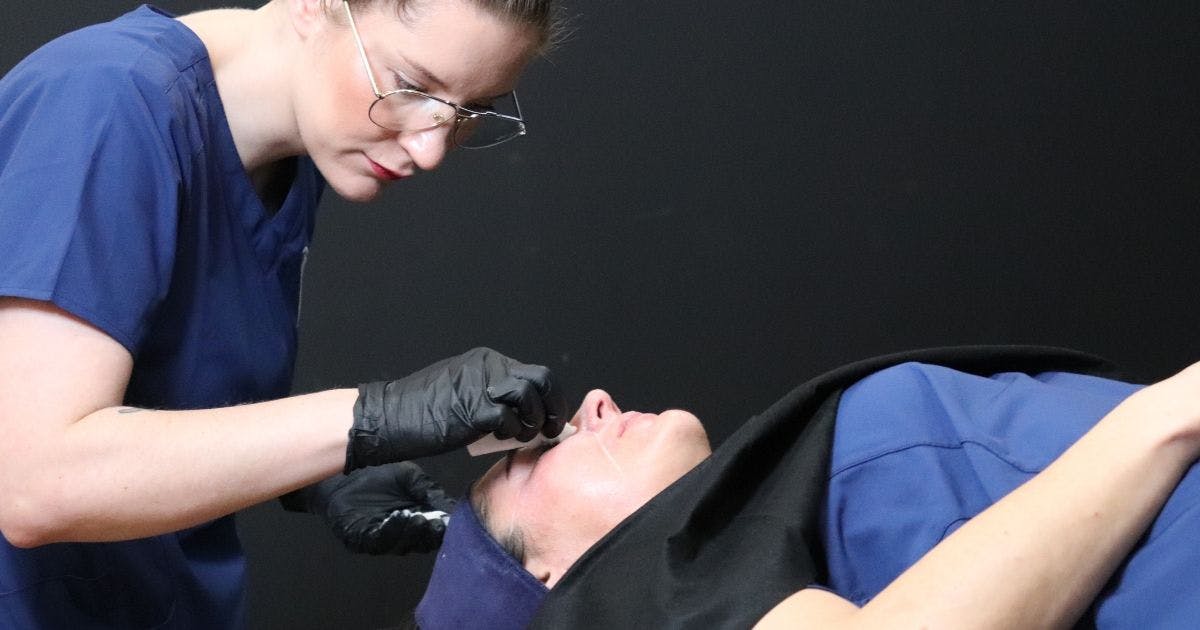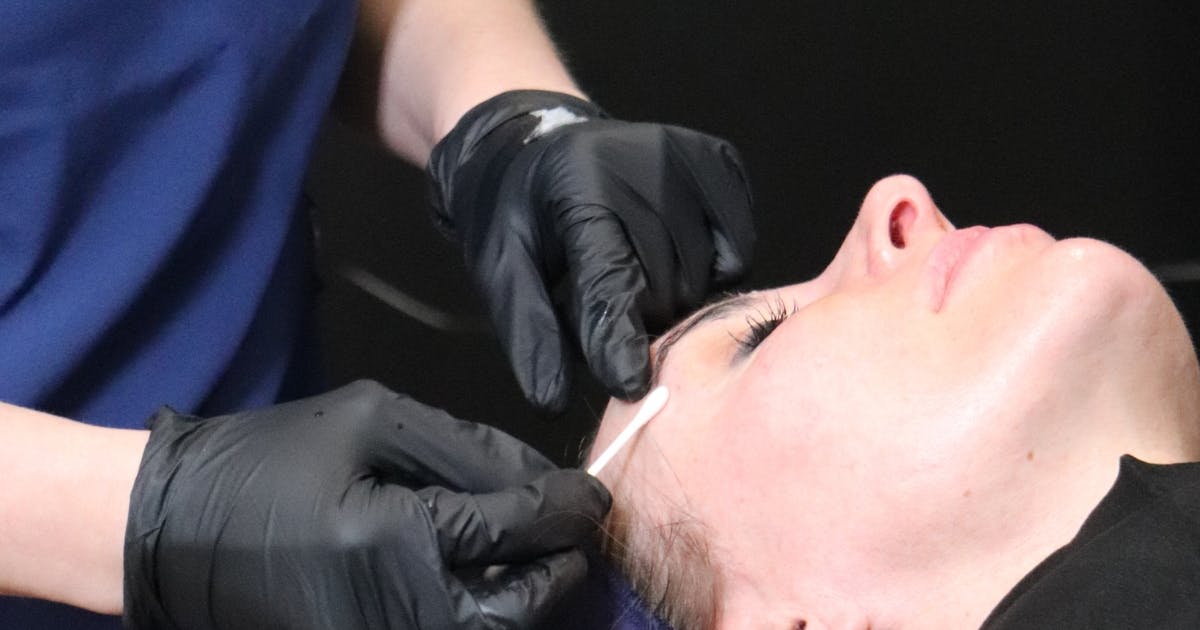3 Tips For Superb Results From Chemical Peels

Our comprehensive Cosmetic Dermatology Course assists medical aesthetics practitioners in broadening their knowledge of skin science. It’s specially designed to improve your clinical skills in a range of popular cosmetic skin treatments.
We wanted an expert view on the part chemical peels play for injectors offering a 'skin first' approach. As such, we spoke to Maja Swierczynska, MSc Cosmetology, lead aesthetician and skin specialist at Harley Academy, The Academy Clinic and STORY clinics.
Here she provides an overview of the role and value of chemical peels in aesthetic medicine…

The history of skin peels
"The history of skin peeling is as old as human civilisation," says Maja. "Cleopatra’s bath of asses’ milk was certainly an astute form of chemical peeling. Sour milk contains lactic acid which is an effective natural exfoliant.
"For centuries we’ve known that chemo-exfoliation – also called chemical peeling – is a skin rejuvenating treatment. It damages the skin in a controlled fashion to activate its natural repair system. The resultant healing leads to an improvement in skin structure and appearance. This means that chemical peels – also known as skin peels – are one of the most popular aesthetics treatments used today."
What do chemical peels do?
"Chemical peels are ideal for concerns such as fine lines, photodamage, wrinkles, acne and pigmentation. Skin peels also combine well with injectables – toxins and dermal fillers – to offer an holistic treatment regime.
"These peels are categorised according to the depth that they penetrate into the skin: superficial, medium and deep skin peels. Deeper penetration results in greater dermal rejuvenation."
Chemical peels are also a form of collagen induction therapy. This is something many patients have developed an interest in, especially for 'anti-ageing'. As such, it gives you another benefit to promote when talking about these treatments with your patients or potential clients.

Expert tips for delivering the perfect chemical peel
1. Consultation / skin assessment and treatment plan
"Every patient should have a thorough consultation and skin analysis before treatment," stresses Maja. "Aesthetic practitioners need to fully understand each patient’s primary skin concerns and what they hope to achieve from their treatment.
"A consultation should also discover the patients habits and work commitments. This is to ensure that the selected peel fits with their lifestyle. Other considerations include skin characteristics, area(s) to be treated, safety issues, healing time, and patient adherence to guidance. These should also be taken into account for the best overall results."
It can be helpful to include information regarding downtime and post-procedure care on your website. You could also send details via email ahead of their booking. This educates patients on the timeline they need to allow for their treatment, particularly if they want to be looking their best for a specific event.
Advising patients of this before they come for an in-person consultation can also help you to reduce the number of people you have to turn away. It's a great way to maximise your time in clinic, making it more likely that the patients you do see will be able to go ahead with treatment on the day.
2. Education and knowledge
"The key to determining the best skin peel treatment for each client is two-fold. First, there needs to be an effective consultation, as I've mentioned. Second, you need to have complete mastery of the different ingredients and types of peels. This means understanding their mechanisms, the effect that they have on the skin during and post treatment, and exactly how to administer them."
Maja notes, "Depth is not the only factor that determines the outcome; composition of the peel solution and the individual ingredients play a big role too. So, using a ‘one peel fits all’ approach is not enough. We specifically teach our trainees to understand ingredients as it allows them to make better choices when choosing which products to use, as well as having a deeper understanding of when and how to use them.
"Having confidence in using a range of peel types allows you to create a personalised treatment plan to meet the skin type and concerns of each patient. This is why our Chemical Peels workshop teaches you multiple types of chemical peels."
3. Post-peel care and maintenance
"All aesthetics practitioners need to be confident that patients have realistic expectations and a good understanding that maintaining the benefits of a chemical peel will require repeat procedures.
"In addition, a patient may need to change their skincare regime and introduce active ingredients to support their successful outcomes. These may include options such as retinoids or acid based creams. Any chemical peel must be managed carefully to minimise the potential for side effects.
"Good aftercare advice is a key component to a well-thought-out treatment plan, too," she concludes.
Always send your patient an email with their aftercare instructions in even if you also provide them with written instructions on the day. Never rely on verbal information, only!
This extra step will not only be helpful to them; it also shows that you go a step further with your customer care. By making your patients feel valued and cared for in this way, it adds to their positive feeling about their experience with you. In turn, this can generate the type of word-of-mouth referrals that can make your aesthetics business a success!
Chemical peel training at Harley Academy
If you’d like to offer your patients the best possible range of skin treatments, check out the Harley Academy Cosmetic Dermatology Course. This provides the ideal basis for providing confident consultation, treatment and aftercare.
It comprises various modules, including:
- Skin assessment with and without a device
- Bespoke skincare routine and treatment planning
- Chemical peels training
- Hyperpigmentation and skin of colour
- Microneedling training
- Skin injectables including skin boosters and polynucleotides training.
Our certified Cosmetic Dermatology Course can be taken on its own, or you can take it as part of our Combined Level 7 course, also known as the Level 7+. This provides a truly holistic, commercial education in aesthetic medicine, where you'll develop a thorough understanding of the everyday aspects of this specialty. These include, but are not limited to:
- Skin
- Facial and skin ageing
- Relevant anatomy
- Conducting thorough patient consultations to ensure the best possible treatment outcomes, as well as understanding when it's appropriate to refuse or delay treatment
- Safe, effective administration of botulinum toxin for upper face concerns, cornerstone dermal filler treatments (areas such as the lips, mid-face and lower face) and skin treatments
- Assessments and tailoring personalised skincare and treatment plans for injectables or topical treatments; this includes multi-step treatment plans that combine approaches and modalities
- Understanding how to prevent and manage complications
- Providing a reliable, ethical, informed and evidence-based service to your patients that offers them natural-looking results that meet their goals.
For more information, or to discuss your requirements from an aesthetics course, simply book a call with our advisors. They'll be able to talk you through every aspect of your journey, from training timelines to payment plans, with no pressure.
All information correct at the time of publication
Download our full prospectus
Browse all our injectables, dermal fillers and cosmetic dermatology courses in one document
By submitting this form, you agree to receive marketing about our products, events, promotions and exclusive content. Consent is not a condition of purchase, and no purchase is necessary. Message frequency varies. View our Privacy Policy and Terms & Conditions
Attend our FREE open evening
If you're not sure which course is right for you, let us help
Join us online or in-person at our free open evening to learn more
Our Partners














STAY INFORMED
Sign up to receive industry news, careers advice, special offers and information on Harley Academy courses and services

